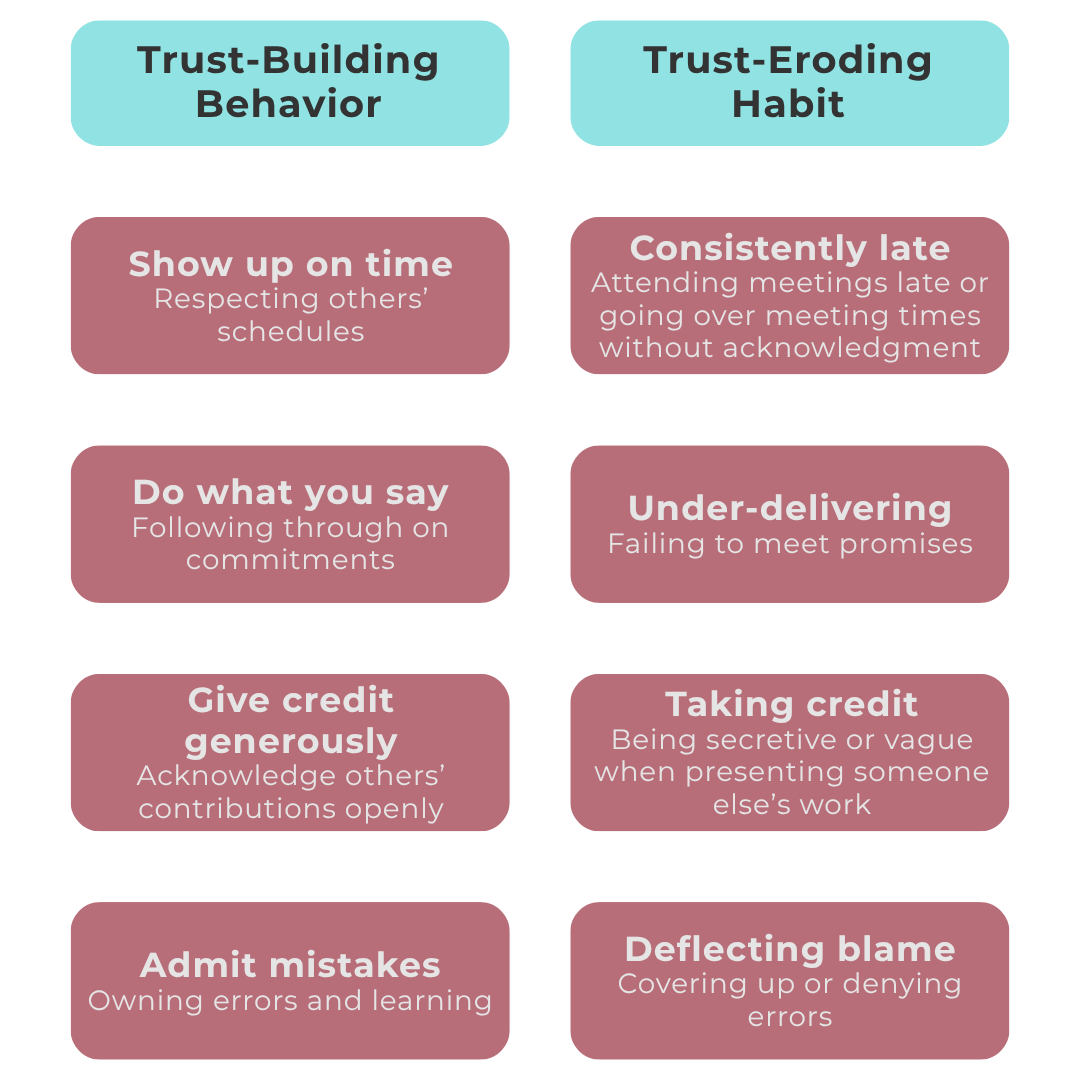Be The Most Trustworthy Person In The Room
Trust is the quiet superpower that opens doors at work and in life. It’s not just a soft skill - it’s a career multiplier that accelerates your growth, deepens your relationships, and gives you the confidence to lead. Building trust is an ongoing practice of consistent, credible behavior that signals integrity and competence.
Actionable Tips & Takeaways
Why trust is your career superpower
Trust creates psychological safety and allows you to lead with integrity.
It's a Career Multiplier: Trust accelerates promotions, grants you more autonomy, and is the foundational element for deeper, more impactful professional relationships.
It’s Earned in the Details: Trust is not a gift - it is built through consistent, credible behavior over time -from showing up on time to admitting when a mistake has been made.
Behaviors that build credibility, and the habits that quietly erode it
Focus on the small, repeatable actions that reinforce your reliability.
Bonus Tip: Social proof and storytelling
Stories are a powerful way to accelerate trust and credibility, especially when entering a new role or project.
Gather Social Proof: Maintain a "Feel-Good Folder" of thank-you notes, emails highlighting your wins, and concise examples of problems you’ve solved.
Tell Your Story: When you need to build trust quickly (like in a new project kickoff or performance review), share a specific, concise story from your folder that demonstrates your competence and reliability. This is much more effective than simply stating, "I am trustworthy."
Tips For Managers
A manager's approach sets the cultural tone. Their role is to create an environment where trust is both a baseline expectation and openly rewarded behavior.
Model It: Consistently model the trust-building behaviors you want to see - especially admitting mistakes and owning errors.
Reward Integrity: Publicly recognize team members who are transparent, take accountability, and give generous credit to others.
Respect Time: Show respect for your team's time by starting and ending meetings on schedule and communicating clearly when priorities must shift.

